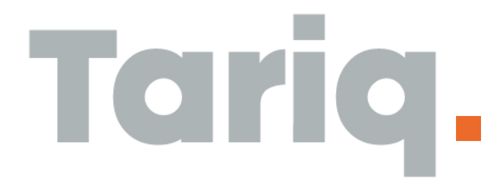Changing careers can feel like stepping into the unknown. Whether you’re pivoting to a new industry or taking a leap into self-employment, your personal brand is the bridge that connects your past experiences to your future aspirations.
Alexandra Aileru, Founder of Confident Career Switch, said it best: “Misalignment between your role and values often causes dissatisfaction, and this can carry over to a new career if left unresolved. Strengthen your skills to build a strong personal brand and set yourself up for faster growth.”
A strong personal brand showcases your value, builds credibility and helps make your transition smoother. So, how can you reposition yourself in a new industry with confidence? Here are a few tips to help you support your next chapter.
Join the £1M Visibility Blueprint
Weekly insights from my £1M personal brand journey. Strategy, visibility systems and earned media plays you can use now.
1. Reflect on Your Why and Own Your Story
Before you update your LinkedIn or dive into networking, take a step back and ask: Why am I making this shift into this industry?
Your values, interests and personal goals are likely very different from when you started your career. Gaining that clarity will help you act with intention.
When you’re clear on what matters to you, you can create a roadmap grounded in authenticity. This will support your efforts even when you face obstacles or setbacks.
This clarity isn’t just for you, it shapes how others connect with your story and why they’ll be rooting for you as you set your sights on a new industry.
2. Reframe Your Past as Fuel, Not Baggage
Some people decide to leave industries for a range of reasons. It might be the promise of better pay or benefits, but for others, it’s about walking away from toxic work environments or experiences that left them questioning their worth.
Whether you’ve experienced burnout, microaggressions, or ineffective leadership, it’s natural to look back with frustration or even disdain. However, your experience still holds significance.
Those experiences are often what make your story stand out. They’re the reason people will want to work with you, collaborate or simply learn more about your journey. Navigating those moments, especially the difficult ones, shows qualities a CV can’t capture—your perseverance, determination and belief in yourself even when things aren’t easy.
The key is to reframe your past as an advantage. Look for the patterns, lessons and growth that came from those experiences, and turn them into a narrative that explains not just what you’ve done but why it matters now.
3. Identify Transferable Skills and Strengths
My Dad will disagree, but we often focus too much on fixing our weaknesses. Sometimes that’s necessary, sure, but what if you doubled down on what you’re already good at?
Your strengths are what set you apart, especially when you’re stepping into a new space and still finding your way. And when you’re ready, we can talk about how to showcase your weaknesses in a way that works for you—not against you.
Alexandra’s advice rings true here: “Define your strengths and align your actions with your brand’s message.”
Identifying the common threads in your journey, whether it’s problem-solving, leadership or industry knowledge, and showing how they apply to your new direction is how you start to reshape your story to align with your future goals.
4. Update Your Platforms With Intention
Your CV might not always be the first thing people see, but your online presence will be.
Make sure your LinkedIn profile, personal website and bios reflect your new direction. Use your summary section to clearly explain who you are, who you help and what you bring to the table. And don’t forget to back it up with content, whether that’s sharing your transition story, commenting on industry trends or spotlighting work aligned with your new goals.
It’s not about being perfect, it’s about being intentional and letting people in so they can follow your journey as you make your career transition.
5. Start Showing Up Where You Want to Be Seen
Your personal brand isn’t just what you say, it’s where you show up and how you engage.
Start following influential voices in your new industry. Join conversations and attend events, even virtually. Visibility builds credibility, especially when you’re entering a new space. Over time, people will begin to associate you with your new path even before your portfolio or experience is fully built out.
If you’re already creating content, use it to reinforce the shift. Talk about your learning journey, share valuable insights or document your experience. It shows you’re not just entering a new field, you’re invested in it.
Moving Forward: Own Your Transition, Own Your Brand
Career transitions aren’t about starting over; they’re about realigning your path to personal success. When you understand your value, reflect on your journey and show up with intention, your personal brand can evolve with you, no matter the journey you take.
Your next chapter deserves to be seen and taken seriously. Own it, shape it and most importantly, lead with confidence.
See you next week!





